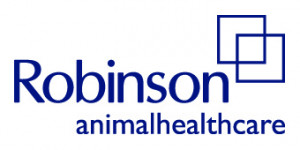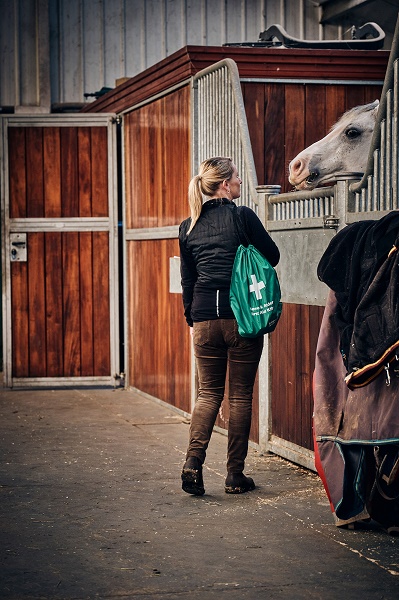Posted: 8th July 2021 | Back to news feed

To help your vet diagnose and treat your horse effectively, it is important that we as horse owners don’t do anything to make the vet’s job more difficult.
Here, Robinson Animal Healthcare take a look at five things your vet wishes you wouldn’t do!

Apply Products to a Wound
If a wound is severe enough to require veterinary treatment it is important to not apply anything to the wound before the vet has had chance to perform an examination.
Products such as purple spray and wound powder can interfere with the colour of the tissue and any discharge making it difficult for the vet to properly assess and treat the wound effectively, resulting in delayed healing and poorer prognosis.
Remove Penetrating Objects
If a wound has been caused by an obvious penetrating object that is still clearly visible in the wound, don’t be tempted to remove the offending object. The vet might need to perform an x-ray prior to removing the foreign object to determine the exact location, angle and depth and if it is penetrating any vital structures.
Removing an object that is embedded in a wound before the vet arrives can hinder treatment and prognosis, not to mention running the risk of not completely removing the whole object.
Delay Phoning the Vet
Never be afraid to call your vet for advice, even for something that seems insignificant, such as a small wound. Delaying calling a vet can seriously affect recovery and healing time.
Administering Prescribed Medication without Veterinary Consent
Most horse owners have got the odd sachet of bute kicking around at the bottom of their first aid kit and it can be tempting to administer it to your horse without speaking to your vet first.
Bute can obviously mask pain, especially if your horse is lame which can make it incredibly difficult for your vet to perform a lameness examination effectively.
Not Vaccinating Your Horse
Horses should be routinely vaccinated to prevent disease and help reduce the spread of infection. It is a myth to believe that your horse doesn’t need vaccinating because they are old or they don’t leave the yard to compete.
If your horse is not vaccinated against Tetanus even the smallest puncture wound can provide an entry point for the infection to thrive. The survival rate for horses suffering from Tetanus is poor and for those that do get better it is a long road to recovery.
Robinson Animal Healthcare has a wide range of products for all your first aid requirements including the market-leading Animalintex® and the legendary Veterinary Gamgee®.
For more information contact Robinson Animal Healthcare on 01909 735000 or visit www.robinsonhealthcare.com
The Equestrian Index newsfeed is compiled from articles submitted by advertising members and expresses the opinions of those members. Watsons Directories Ltd shall not be held liable for any inaccuracies or mis-statements therein.
